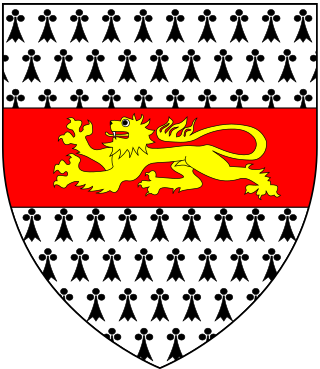Related Research Articles
Sir James Cambell or Campbell was an English merchant who was Lord Mayor of London in 1630.

Sir Hugh Hamersley was a 17th-century merchant who was Lord Mayor of London in 1627.
Sir Robert Ducie, 1st Baronet was an English merchant who was Lord Mayor of London in 1631. He was banker to King Charles I.

Sir John Robinson, 1st Baronet, of London was an English merchant and politician who sat in the House of Commons between 1660 and 1667. He was Lord Mayor of London in 1662.
Sir George Bolles or Bolle was an English merchant who was Lord Mayor of London in 1617.
Sir Thomas Lowe was an English politician who sat in the House of Commons at various times between 1606 and 1622. He was an alderman of the City of London and became Lord Mayor of London in 1604.
Robert Bateman was an English merchant and politician who sat in the House of Commons between 1614 and 1626.
Sir Richard Gurney, 1st Baronet, was an English merchant who was Lord Mayor of London. He supported the Royalist cause in the English Civil War.
Sir Francis Jones (1559–1622) was an English merchant who was Lord Mayor of London in 1620.

Sir Edward Barkham was an English merchant who was Lord Mayor of London in 1621.

Sir Peter Probie was an English politician who sat in the House of Commons at times between 1593 and 1598. He was Lord Mayor of London in 1622.
Sir Martin Lumley was an English merchant who was Lord Mayor of London in 1623.
Sir John Gore was an English merchant who was Lord Mayor of London in 1624.
Sir Cuthbert Hacket was an English merchant who was Lord Mayor of London in 1626.
Sir Richard Deane was an English merchant who was Lord Mayor of London in 1628.
Sir George Whitmore was an English merchant who was Lord Mayor of London in 1631. He supported the Royalist cause in the English Civil War.
Sir Nicholas Rainton was an English merchant who was Lord Mayor of London in 1632.
Sir Richard Venn or Fenn was an English merchant who was Lord Mayor of London in 1637.
John Gayer or Gayre was an English merchant who was Lord Mayor of London in 1646.
Sir Robert Willimot, of Banstead, Surrey, was a British politician who sat in the House of Commons from 1734 to 1741. He was Lord Mayor of London in 1742.